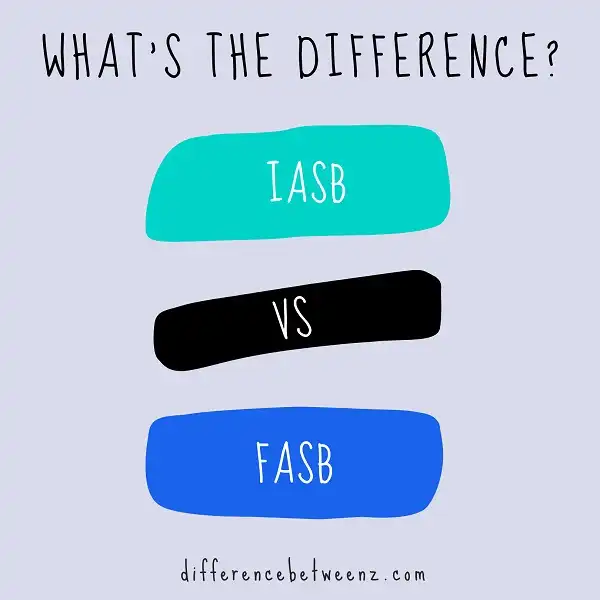The IASB and FASB are two of the most important organizations when it comes to financial accounting. Though they share some similarities, there are also some key differences between these two boards. In this blog post, we’ll take a closer look at these organizations and explore the differences between them. By understanding the background of each board, you can better understand how they impact financial reporting in today’s world.
What is IASB?
IASB is the International Accounting Standards Board. IASB is an independent, private-sector body that develops and approves International Financial Reporting Standards (IFRSs). IASB also provides guidance on how IFRSs should be interpreted and applied and promotes the use and adoption of IFRSs around the world. More than 150 countries have now adopted IFRSs, including all EU member states. IASB’s work helps to improve the quality and consistency of financial reporting globally, which enhances investor confidence and supports economic growth. IASB strives to serve the public interest by setting high-quality, internationally accepted accounting standards that require transparent and comparable information in financial statements. This allows investors, companies, lenders, and other users of financial statements to make well-informed decisions. IASB’s ultimate goal is to bring about a convergence of IFRSs with national accounting standards around the world.
What is FASB?
FASB, or the Financial Accounting Standards Board, is an independent organization that establishes accounting standards for businesses and other organizations. FASB standards are used by companies all over the world to ensure that their financial statements are accurate and transparent. FASB was founded in 1973, and its standards are used by both public and private companies. FASB standards are updated on a regular basis, and new standards are developed as the needs of businesses change. FASB is overseen by the SEC or the Securities and Exchange Commission. The SEC is responsible for ensuring that businesses comply with FASB standards. FASB operates independently of any business or government agency. Its members are drawn from a variety of backgrounds, including accounting, business, academia, and practice. FASB standards are recognized as authoritative by the business community, investors, regulators, and other users of financial statements. FASB’s mission is to improve financial reporting by creating clear and consistent accounting standards that enable businesses to report their financial position accurately and transparently.
Difference between IASB and FASB
IASB and FASB are both private, not-for-profit organizations that establish financial accounting and reporting standards. IASB is the International Accounting Standards Board, while FASB is the Financial Accounting Standards Board. IASB was formed in 2001 and is headquartered in London, England. IASB develops IFRS, or International Financial Reporting Standards. These standards are used by businesses and organizations around the world for financial reporting purposes. FASB was formed in 1973 and is headquartered in Norwalk, Connecticut, USA. FASB develops GAAP, or Generally Accepted Accounting Principles. GAAP is primarily used by businesses and organizations in the United States for financial reporting purposes. Although IASB and FASB have different geographic scopes, their ultimate goal is to develop high-quality accounting standards that promote transparency, comparability, and understandability in financial reporting.
Conclusion
The main difference between the IASB and FASB is that the IASB is an international organization, while the FASB is a national organization. This means that the IASB has to take into account different cultural norms when issuing standards, while the FASB can be more specific to American accounting standards. Additionally, the IASB is a private organization, while the FASB is a government-sponsored organization. This affects their funding and how much influence they have on policymaking.


